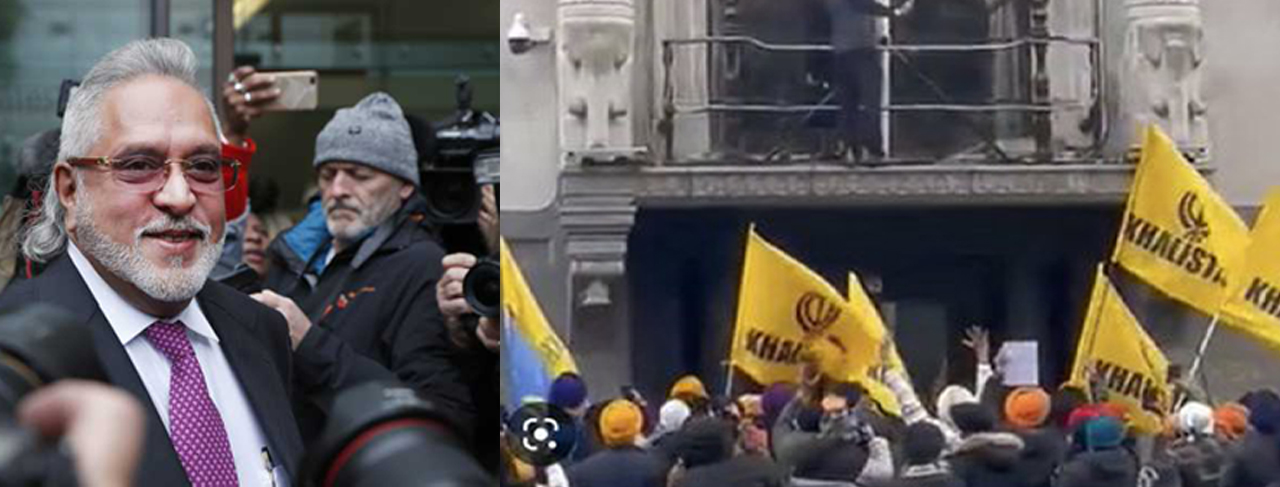NEW DELHI: The United Kingdom government, first under Boris Johnson and now under the present Prime Minister, Rishi Sunak, has failed to stand up to establishments within the country that have prevailed upon 10 Downing Street and stopped it from addressing India’s genuine interest.
The chief
Sunak and his Cabinet, which commands one of the world’s most advanced security apparatuses, have not taken any action against those who attacked the Indian High Commission. More than 28 days have passed of the incident taking place in which the separatists and extremists broke the high commission’s window panes and hoisted the Khalistani flag on the premises.
So far, apart from lip service, the Sunak government has not taken any action on these individuals, which, Indian officials believe, will encourage more such attacks in the near future.
The Indian establishment, sources said, was “dismayed” over this approach and that was one reason behind Indian Prime Minister Narendra Modi calling up Rishi Sunak on Thursday and asking him to take strong action against the anti-India elements.
Similarly, what has also irked the government machinery is that despite fugitive Vijay Mallya exhausting all possible legal remedies that he could use, first the Johnson government and then the Sunak government, have refused to extradite him to India.
This action, officials said, has raised questions on how serious London was when it came to respecting its own laws that cover issues of extradition. The fact that the Indian PM raised this issue in a one-on-one call with his British counterpart, officials said, shows how serious he was about these two issues, while stating these issues had the potential to cause serious bilateral damage if not acted upon.
Modi, during his conversation with Sunak, without naming Mallya or other such offenders, who include naval war room leak accused Ravi Shankaran (the fact that he was still based in London was revealed by The Sunday Guardian (“Kingpin in naval war room leak flourishing in London”), arms dealer Sanjay Bhandari and Nirav Modi, asked Sunak about the progress regarding the extradition process of these economic offenders. He made it clear that it was the responsibility of the British government to return them so that they can appear before the Indian judicial system.
Notably, in April 2020, after exhausting all legal remedies available to him to escape extradition to India to face charges of embezzling public money, Mallya had filed an asylum request with the UK Home Department on “humanitarian grounds”. The UK government has said nothing on his request, but has allowed him to stay in London.
In its response to The Sunday Guardian’s queries, a spokesperson of the UK Prime Minister’s Office referred to the talks between Modi and Sunak that took place on Thursday. As per the dialogue, Sunak, while speaking on the attack on the Indian High Commission building in London, “reiterated his condemnation of the unacceptable violence outside the Indian High Commission in London earlier this month and stressed that extremism had no place in the UK and updated on the steps being taken to ensure the security of Indian High Commission staff”. The spokesperson further asked the reporter to reach out to the London police department. Sunak did not speak on the topic of extradition of Indian fugitives.
On the issue of the non-extradition of convicted criminals, the spokesperson said that the office of the Home Secretary Office will get back. Till the time of filing of the story, no response was received from either the UK Home Office or the London police.
After the attack on the India High Commission in London, Government of India had reduced the security around the UK High Commission in New Delhi to give the message that nothing can be “one-sided” or should be seen as an “accrued privilege”.
Such measures, officials said, in other fields are likely to be taken if no strict action against Khalistani elements and economic offenders are taken in the coming days. “A lot of anti-India events, overtly and covertly, originate from London and nearby areas. It is hard to believe that the intelligence agencies there are not aware of it. If something like this was happening in India and the target was London, we would have acted upon it swiftly and heavily. But as of now, we have seen a lethargic response from the UK government when it comes to issues of law and order that concerns India’s interest,” an official source said.
UK’s shielding of fugitives and extremists raises eyebrows in India
इस शब्द का अर्थ जानिये
- Advertisement -

